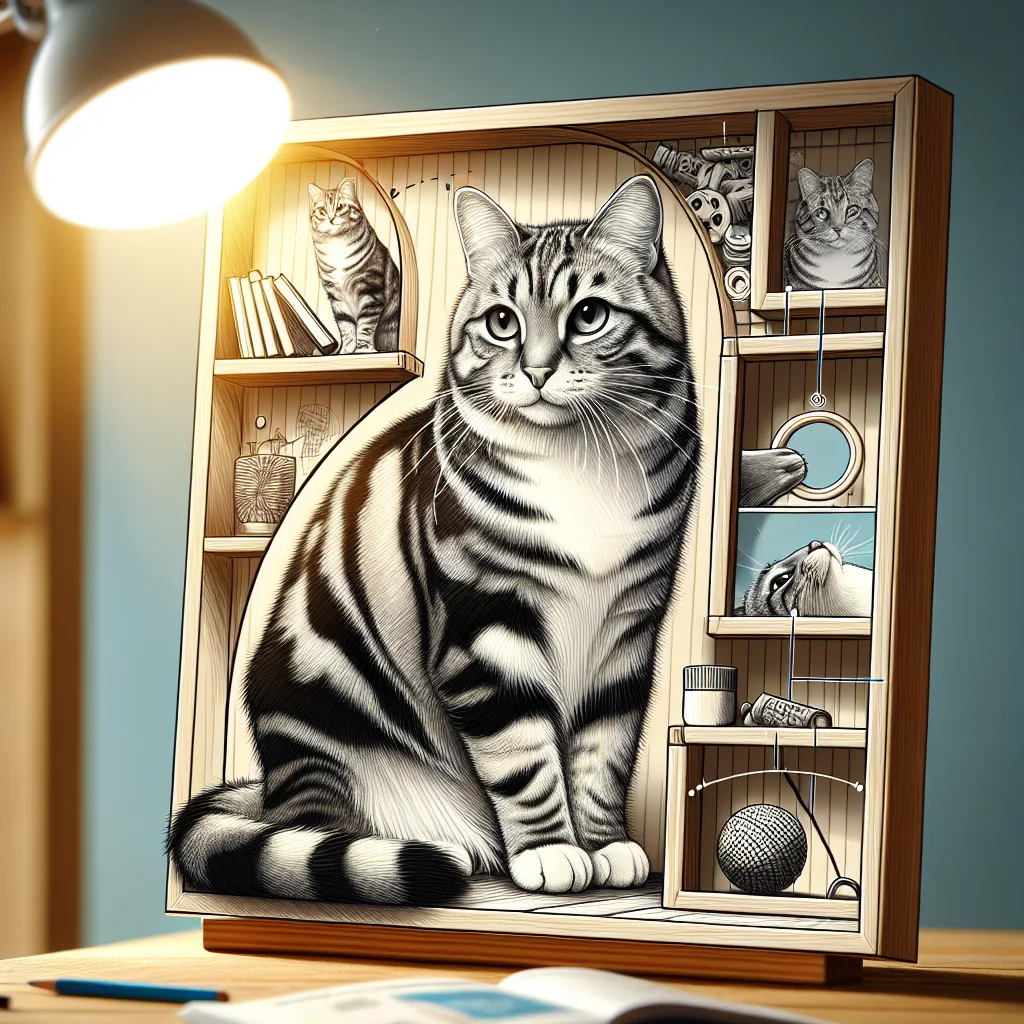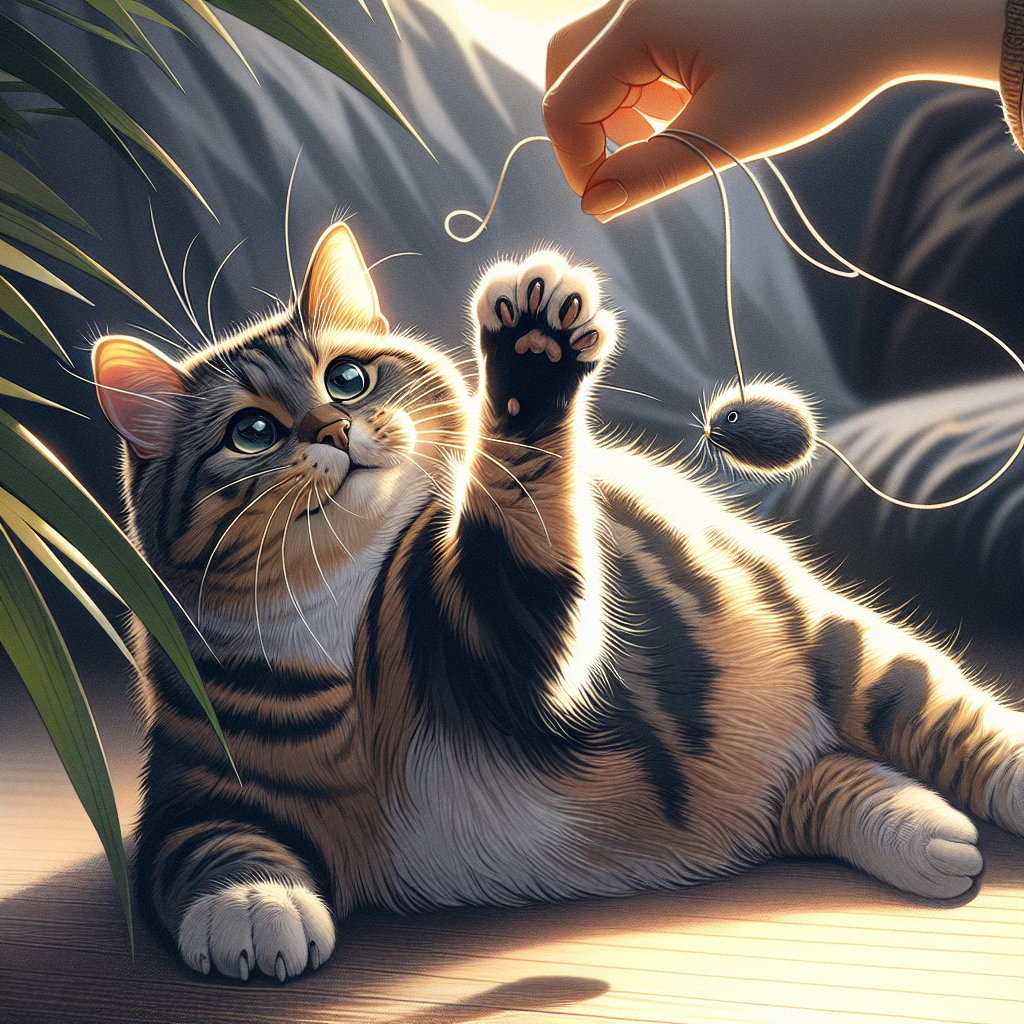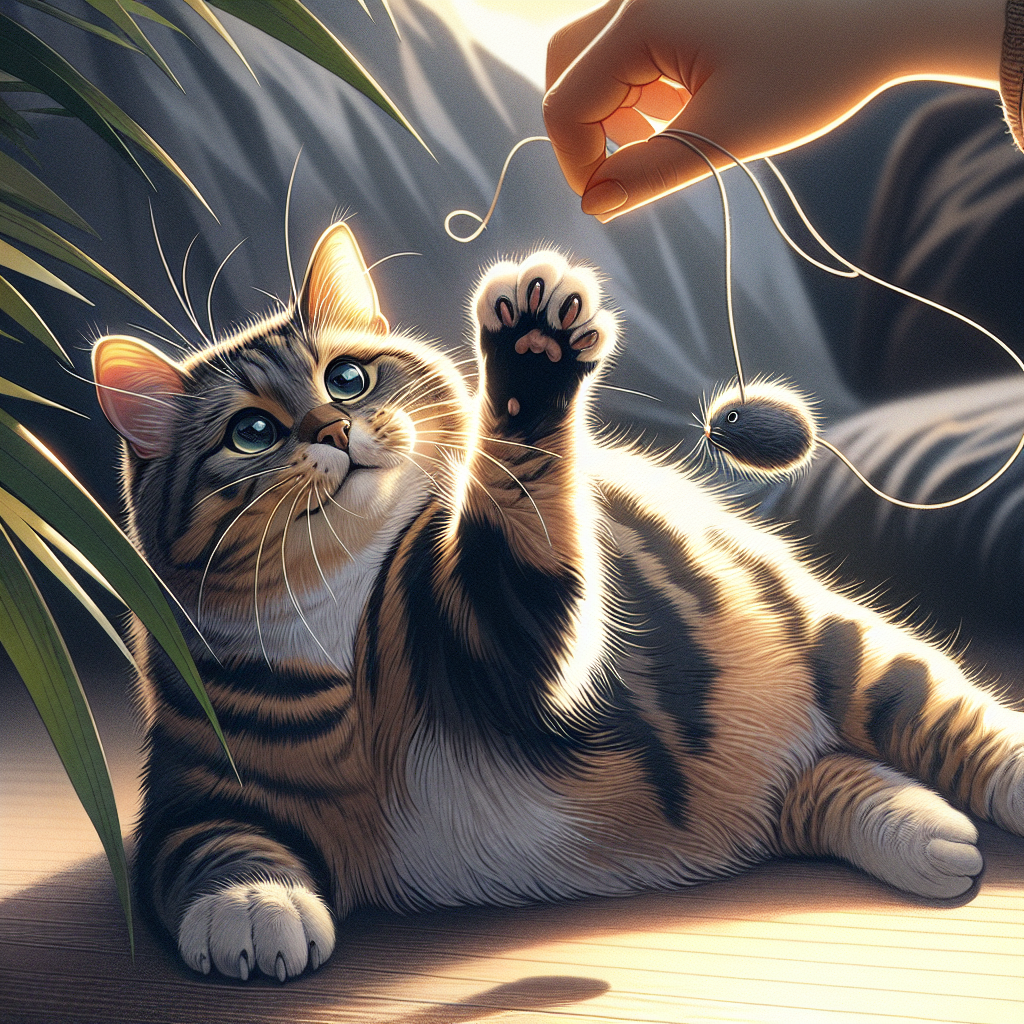Tabby cats have always been a fascination among pet lovers, but have you ever wondered what makes their personality so unique? From their playful and friendly nature to their independent yet affectionate demeanor, tabby cats exhibit a range of characteristics that set them apart from other feline companions. Whether you’re a seasoned tabby owner or considering bringing one into your home, understanding their personality traits can deepen the bond between you and your furry friend. So, let’s take a closer look at the captivating world of tabby cats and uncover the secrets behind their irresistible personalities.
Physical Appearance
Tabby cats come in a variety of coat patterns and colors, making them a visually striking breed. Their coat patterns can include classic tabby, mackerel tabby, spotted tabby, and ticked tabby. Classic tabby cats have bold swirls or marbled patterns, mackerel tabbies have thin stripes, spotted tabbies have distinct spots, and ticked tabbies have a more uniform pattern. In terms of colors, tabby cats can be seen in various shades including brown, orange, gray, silver, and even blue. These beautiful coat patterns and colors make tabby cats easily recognizable and add to their charm.
In terms of body structure, tabby cats are typically of medium size, with a well-proportioned body. They have strong muscles and are known for their athletic build. Their body structure gives them excellent agility and allows them to move with grace and precision. Their frame is complemented by a long, slender tail that adds to their overall elegance and balance. Overall, tabby cats possess a sleek and visually appealing physical appearance.
Temperament
-
Affectionate: Tabby cats are known for their loving and affectionate nature. They enjoy being around their human companions and often seek out attention and physical affection. They are likely to be your constant shadow, following you around the house and snuggling up in your lap whenever given the chance. Tabby cats have a strong bond with their owners and thrive on human companionship.
-
Independent: Despite their affectionate nature, tabby cats also exhibit a level of independence. They have a confident and self-assured demeanor, which allows them to handle short periods of alone time without getting anxious or stressed. This independent streak means they can entertain themselves and do not rely solely on their owners for stimulation.
-
Playful: Tabby cats have a playful and energetic personality. They enjoy interactive play and are particularly fond of toys that stimulate their natural hunting instincts. Spending time playing with your tabby cat not only provides them with physical exercise but also strengthens the bond between you two. Their playful nature can keep you entertained for hours on end.
-
Curious: Tabby cats have an innate curiosity and love to explore their surroundings. They enjoy investigating anything new or unfamiliar and are quick to investigate any changes in their environment. This curiosity drives them to learn and adapt to new situations, making them an adaptable and engaging companion.
-
Social: Tabby cats are generally sociable and often get along well with other cats and animals. They are friendly and welcoming in nature, making them a great addition to multi-pet households. Tabby cats are known to form strong bonds with their fellow feline companions and can often be seen grooming and playing with them. Their sociable nature also extends to humans, as they are typically friendly and warm towards strangers.

Intelligence
-
Quick Learners: Tabby cats are intelligent animals and are known for their ability to learn quickly. They can easily pick up new commands and tricks, making them an ideal candidate for training. With patience and positive reinforcement, tabby cats can be taught various behaviors and commands, enhancing their bond with their owners.
-
Problem Solvers: Tabby cats possess problem-solving skills and have a knack for figuring things out. They enjoy engaging in interactive puzzle toys that require them to use their intelligence to obtain a reward. This cognitive stimulation keeps their minds active and sharp.
Communication
-
Vocalizations: Tabby cats are known for their extensive range of vocalizations. They use different sounds to communicate various messages, such as meowing, chattering, chirping, and even trilling. Each sound conveys a different meaning, and as their owner, it is essential to understand and respond to their vocalizations to better fulfill their needs.
-
Body Language: Tabby cats also communicate through their body language. Tail movements, ear positions, and facial expressions all provide valuable insight into their mood and intentions. Understanding their body language helps you provide a comfortable and stress-free environment for your tabby cat.

Behavioral Traits
-
Hunting Instincts: Tabby cats have strong hunting instincts that are deeply ingrained in their nature. They may display behaviors such as pouncing, stalking, and chasing objects or prey. Engaging in interactive play that mimics hunting behaviors allows tabby cats to fulfill their natural instincts in a safe and controlled environment.
-
Territorial Behavior: Like many other cats, tabby cats can exhibit territorial behavior. They may mark their territory with scent markings or become possessive of certain spaces or objects. Providing them with dedicated areas or furniture can help alleviate territorial tensions and provide them with a sense of security.
-
Sensitivity: Tabby cats can be sensitive to changes in their environment or routine. They may become stressed or anxious in unfamiliar situations or when faced with sudden changes. Providing them with a calm and stable environment can help alleviate their sensitivity and promote overall well-being.
Adaptability
-
Adjusting to New Environments: Tabby cats are generally adaptable and can adjust well to new environments. Whether it be a new home, new roommates, or a change in routine, tabby cats tend to handle these transitions with relative ease. However, it is essential to provide them with a gradual introduction and a safe space where they can feel secure during the adjustment period.
-
Tolerance to Change: Tabby cats have a reasonable level of tolerance to change. They can adapt to minor disruptions in their routine or environment without becoming overly stressed. However, it is important to introduce any changes gradually and provide them with a consistent and structured routine to ensure their well-being.
Health Considerations
-
Genetic Conditions: Tabby cats, like other feline breeds, can be susceptible to certain genetic conditions. Some examples include hypertrophic cardiomyopathy (a heart condition), polycystic kidney disease, and progressive retinal atrophy (an eye disorder). Regular veterinary check-ups and genetic testing can help identify and manage these conditions effectively.
-
Obesity: Tabby cats have a tendency to gain weight if not provided with a balanced diet and regular exercise. It is important to monitor their food intake and provide them with appropriate portion sizes to prevent obesity. Regular playtime and engaging in interactive toys can also help keep them physically active and maintain a healthy weight.
-
Urinary Problems: Tabby cats may be prone to urinary problems such as urinary tract infections or bladder stones. Ensuring they have access to fresh water at all times, feeding them a balanced diet, and providing them with clean litter boxes can help prevent these issues. Regular veterinary check-ups are also essential for monitoring their urinary health.
Grooming Needs
-
Shedding: Tabby cats have a medium-length coat that requires regular grooming to minimize shedding. Brushing them at least once a week not only helps reduce loose hair but also prevents the formation of mats or tangles. During shedding seasons, more frequent brushing may be necessary to keep their coat healthy and free from excess hair.
-
Bathing: Tabby cats generally do not require frequent bathing unless they have gotten into something dirty or have a specific medical condition. However, if bathing is necessary, it is essential to use cat-specific shampoo and gently introduce them to the bathing process to minimize stress.
-
Brushing: Brushing a tabby cat’s coat helps stimulate blood circulation, distribute natural oils, and remove loose hair. Regular brushing not only keeps their coat looking sleek and healthy but also strengthens the bond between you and your furry companion.
Training
-
Basic Obedience: Tabby cats are trainable and can learn basic obedience commands. Using positive reinforcement techniques and reward-based training methods can yield the best results. Consistency, patience, and a calm environment are key when training a tabby cat.
-
Clicker Training: Clicker training can be a useful tool when training tabby cats. The sound of the clicker serves as a marker for desired behaviors, allowing them to understand what they are being rewarded for. Clicker training can be particularly effective in teaching tricks or more complex behaviors.
Compatibility with Other Pets
-
With Other Cats: Tabby cats generally get along well with other cats, especially if they have been properly socialized. They have a sociable nature and often form strong bonds with their fellow feline companions. It is important to introduce them gradually and monitor their interactions initially to ensure a harmonious relationship.
-
With Dogs and Other Animals: Tabby cats can also be compatible with dogs and other animals, provided proper introductions and monitoring are implemented. With time and positive reinforcement, they can establish a friendly and respectful relationship with their furry counterparts.
Understanding the personality of tabby cats is essential for providing them with the care and environment they need to thrive. Their affectionate nature, intelligence, and adaptability make them wonderful companions for individuals and families alike. With patience, love, and understanding, you can build a strong bond with your tabby cat and create a harmonious living environment for both of you.

